Neighbors of indicted South Dakota ranchers speak to decades of bullying from Forest Service
Charles and Heather Maude’s case highlights growing tensions between government agencies and the 2% of Americans still working in production agriculture.
As Charles and Heather Maude prepare to face trial for a fence built before they were born, neighbors in remote Custer County, South Dakota speak to years of hostility with the Forest Service (USFS), a rumored land grab, and federal agents gone rogue.
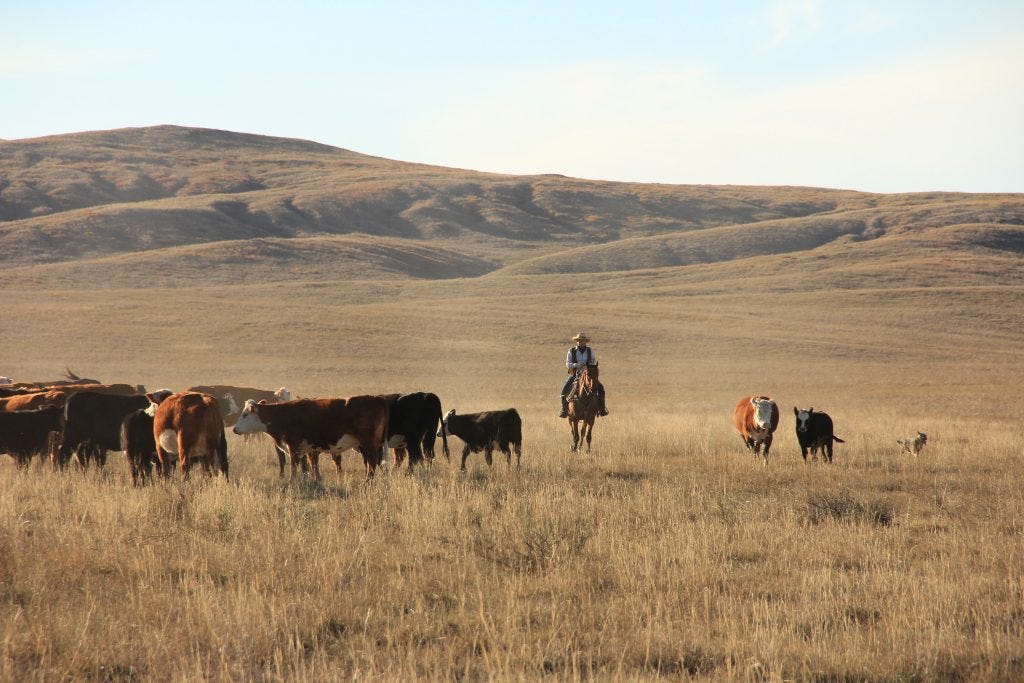
Dispute in facts between USFS and ranchers
As previously reported, the Maude family has maintained a grazing agreement in good standing with USFS for 60 years. At each renewal, their fence has been acknowledged. Last year, an alleged complaint by an unidentified hunter called a boundary line into question. Charles and Heather Maude were fully cooperative and sought a resolution. Instead, 87 days after the complaint, they were served separate indictments by Special Agent Travis Lunders.
In a statement to Capital Press, the Forest Service claimed the Maudes were notified about a potential conflict four years ago.
“Subsequently, the Forest Service observed crops had been planted and an irrigation system installed on National Forest System land without authorization, despite the Maudes having been informed that they were trespassing,” the agency stated.
Unlike the Forest Service, Charles and Heather Maude are under a gag order. They are unable to speak to the media about their case.
Heather’s mother Randi Hamilton calls the Forest Service’s statement “all lies.”
“Where is the documentation for the statements made by the Forest Service and published in the Capital Press?” she says. “Why aren’t elected officials demanding proof to back the Forest Service’s statements?”
Several neighbors corroborate this version of events.
“Charles’ great-grandfather started farming that area about 1906,” rancher Scott Edoff says. “I believe they have letters from the Forest Service acknowledging the cornfield fence from the early 80s. To my knowledge, Charles has yet to receive any kind of letter telling him to cease and desist the farming. These guys have never done anything to cross the Forest Service. I don’t think they’ve ever even had a Forest Service violation.”
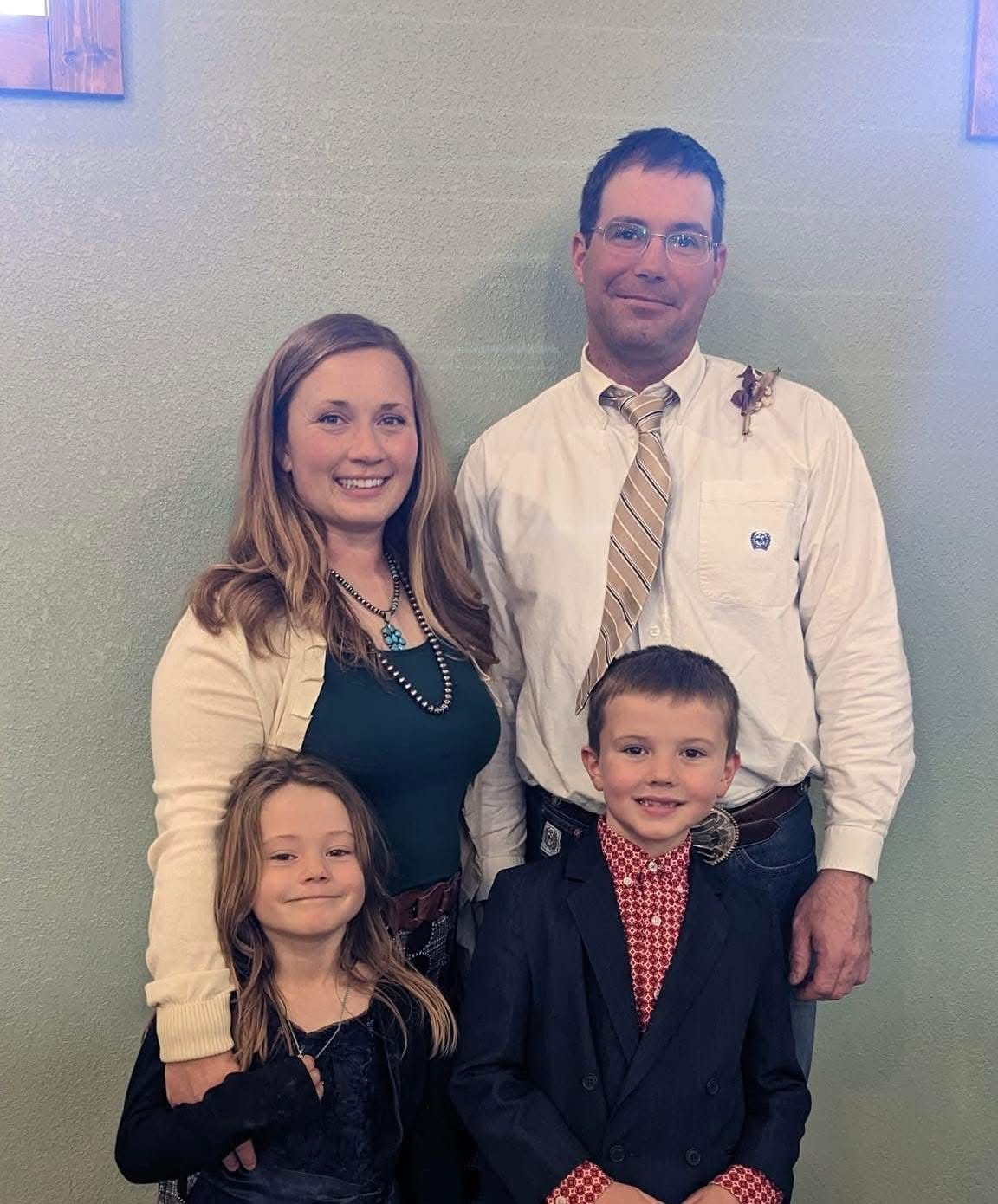
Big money, NGO presence sparks rumors; “playgrounds for the rich and famous”
The Maude ranch is close to a corridor in the Buffalo Gap National Grasslands once scoped for expanded wilderness protection, where some locals believe the government wants to eliminate their grazing leases and replace cattle with free range bison.
“Every rancher that borders that proposed corridor has had more problems than average with the Forest Service,” says Hamilton.
Dan O’Brien, founder of Wild Idea Buffalo Company, is located just down the road. He has received glowing media attention for his “climate friendly” bison program, featured in outlets such as Men’s Journal. His partners include Patagonia. Neighbors describe him as a “professional grant writer.” Some of his bison run on land leased from billionaire Vin Ryan. I reached out to Wild Idea for comment but did not receive a response. The Nature Conservancy also manages a bison herd in the area.
“All these NGOs are involved,” says neighboring rancher David Uhrig. “They’re all getting grants from the government, taking private ground off the tax rolls for playgrounds for the rich and famous. The rules don’t apply to them, but they apply to all the taxpayers trying to raise families.”
“It’s communism. The government is taking over the land.”
“They make willing sellers out of us.”
Scott Edoff says the ongoing conflict between ranchers and the federal government is intentional.
“It’s happening all over the United States. They harass you so much, until finally you’re done, ready to walk away. Then they use the World Wildlife Fund and The Nature Conservancy and these other groups as the ‘good guys.’ They’ll come in and take the land off your hands.”
The Maude and Edoff families have shared a fence line on the prairie for over 100 years. Charles grew up with Edoff’s children. He calls the charges against the Maudes “devastating.”
“They’re like family. These are good people.”
He believes there’s a pattern to the way the government treats ranchers. Federal agencies mandated to work with land managers to steward the nation’s natural resources for the good of its people are instead growing ever more hostile toward the few Americans who still know how to live with and by the land.
“It’s communism. The government is taking over all the land, and it’s so quiet and so underhanded and so smooth nobody knows about it. When these NGOs get to their goal of 50 million or 100 million acres conserved or whatever it is, that’s bought with government money, what are they going to do with it? What’s their end game? Give it to the government? That’s the question no one is asking.”
Neighbor Frank Bloom fears charges
Frank Bloom’s family has ranched on this prairie since 1916. He shares a border with the Maudes and a history with Travis Lunders, the agent who served their indictments. Tensions came to a head last year when Bloom and Lunders exchanged heated words on the right-of-way outside Bloom’s ranch.
“Lunders said, ‘I can come in and survey anything I want to on your property.’ About two weeks later he came back. Accused me of having 40 acres of Forest Service land, too, and turned me in to the state’s attorney. Only difference between me and the Maudes is the state’s attorney has not indicted me yet.”
Bloom bought this particular ranch in 2007. He says the fence pre-dates him and he had no reason to believe it was misplaced. He claims the land had never been surveyed by the government. He is willing to do a lease, sale, or trade under the Small Tract Act if the boundary is off, but says USFS won’t talk. He fears charges are coming for him, too.
“There’s a problem in this area,” says Bloom. He also grazes cattle in the proposed wilderness zone. “They want that whole Indian Creek area for buffalo. Their best mechanism of defense is time. 100 years from now they might get their wilderness. Because these families fighting for their homes will be dead and gone.”
Bloom, who serves as president of the South Dakota Public Lands Council, believes the coordination between deep-pocketed NGOs and bureaucrats opposed to ranching threatens the future of the few independent producers still remaining. Buffalo are a wild animal, more destructive than cattle and far more difficult to manage. He calls the “town people” who have bought into the contradictory idea that cattle are killing the environment while bison are saving it “brainwashed.”
“Why should our livelihood go to big corporate buffalo people? Pretty soon you’re gonna see the day where you can’t hardly buy a good beefsteak. We’re losing a lot of our good family ranches.”
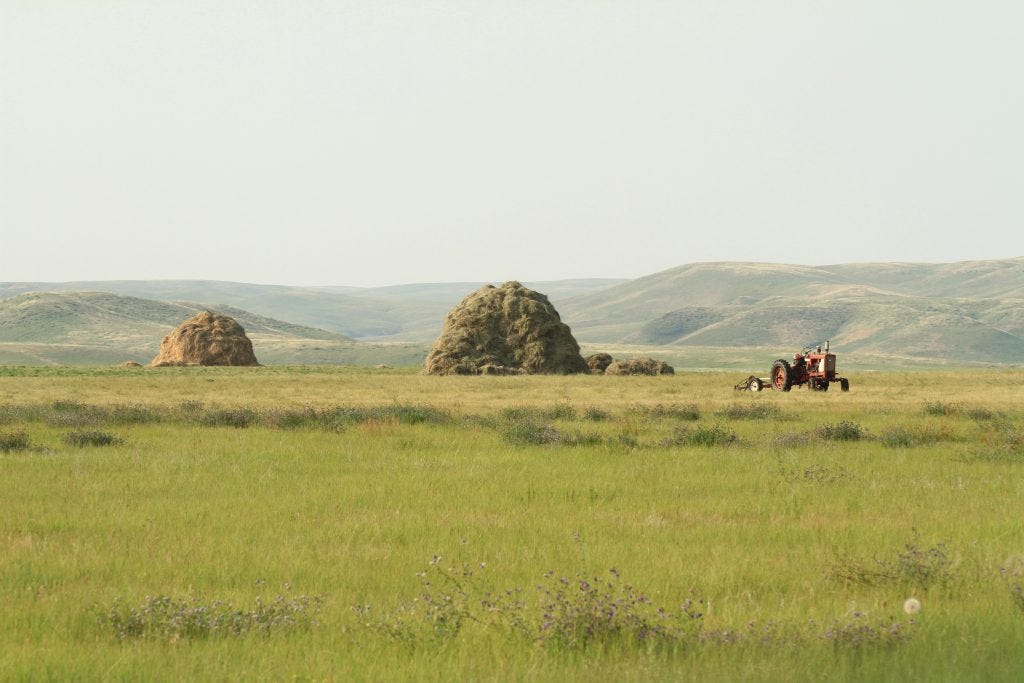
History of harassment; feds gone rogue
Sources tell me Jack Isaacs, the Forest Supervisor for the Nebraska National Forest and Grasslands, was the highest ranking individual in regional Forest Service management at the time of the Maudes’ indictments. They believe Isaacs is behind the indictments, but no one wants to talk about him on the record for fear of retaliation. There’s a prevailing belief that the Forest Service is anti-ranching.
Multiple sources tell me Isaacs and Lunders worked together years ago at the Wall, SD office and that the idea for the proposed wilderness designation originated there. I am unable to confirm this and Isaacs does not return my request for comment.
In 2010, Scott Edoff traveled to Washington, D.C. to fight the proposed wilderness designation on Buffalo Gap National Grasslands.
“I think they wanted O’Brien to run bison,” he says. “Once they got the wilderness they’d throw us ranchers out and let bison in the wilderness forever. I think that was what their intent was. We got in the middle and raised so much hell, I think we’ve got it shelved for now. But it will come back. It always does.”
Edoff subscribes to a simpler explanation for the latest actions from the Forest Service.
“I think it’s an ego problem. Lunders was trying to bully the Maudes and they didn’t bully.”
To his point, unflattering stories involving Lunders are easy to find. Rachel Gabel writes about one incident at a Civilian Conservation Corp (CCC) Museum, where Lunders allegedly confiscated a USFS marker that a museum donor had purchased from a scrap metal sale.
As the story goes, Lunders got wind of the museum’s blatant theft of government property, marched past the little old ladies at the door, and removed the marker and frame from the wall, reclaiming the stolen government property. His superior apologized for his actions to the ladies who volunteer at the museum and work to honor the contributions of those who worked in CCC camps.
“Travis Lunders is a bully,” Hamilton says. “I think he’s used to getting away with this.”
Locals say USFS fails to maintain their own fences
“For decades we have had policymakers pushing a choke on production agriculture, a choke on local economies,” says neighbor David Uhrig, who manages Mount Rushmore Angus Ranch and serves on the board for South Dakota Stockgrowers. “Government is gonna control everything you do.”
Uhrig says the USFS has failed its mandate to coordinate with land managers.
“The Forest Service does not view us as a partner on any of the federal ground. They view it as: It’s theirs. They control everything. If I don’t maintain my fences, they come after me. If I don’t maintain my dams, they come after me. But if they don’t uphold their end of the deal, nothing happens. There’s no effort from the Forest Service to coordinate with us.”
Three years after a prairie fire, he says the Forest Service still hasn’t rebuilt their downed fences.
“The way the Forest Service handbook reads, they’re responsible for interior fences. Three years later, we still don’t have those fences built. I’m chasing cattle all over the country because the Forest Service isn’t doing their job.”
There’s irony in the Forest Service threatening a young couple with years in prison over a fence while allegedly refusing to build or maintain their own.
“We’ve done a disservice to society by not teaching ag law,” Uhrig adds. “People would be surprised by how fence law reads. Why do we assume just because the Forest Service signs off on something, the rancher is suddenly responsible for it?”
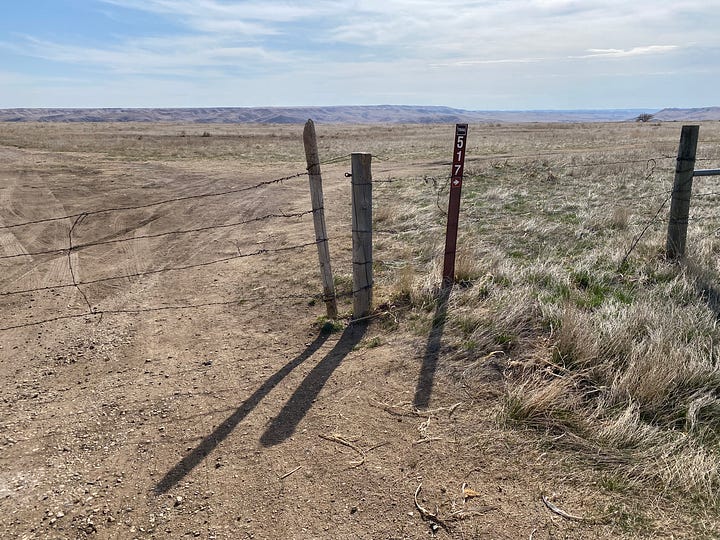
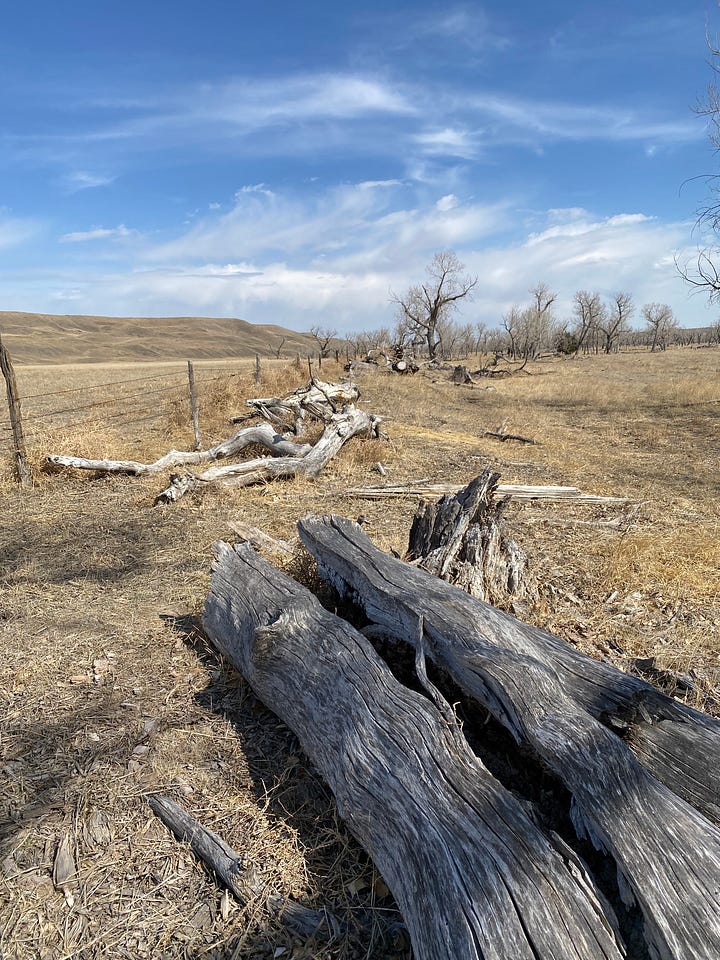
Maude family awaits trial
The Maudes are beloved by their community, no one has a bad word to say about the young family.
As chief of the Folsom fire department, Uhrig often works with Charles Maude in his capacity as volunteer fire chief in neighboring Scenic.
“This is an honest-to-God, hardworking, salt of the earth family,” Uhrig says.
When I ask Frank Bloom the same question, his answer is unequivocal.
“I think they’re the best family in the country. They’re honest, they’re hardworking, they got two young kids. Lunders indicting each one separately is ridiculous, done for spite. Now they have to hire different attorneys for each one. There is nobody in the community that does not get along with the Maudes. They’re very, very, very good people.”
A GoFundMe set up for the couple’s legal bills has raised over $72,000 as of this writing.
“They thought Charles and Heather wouldn’t fight,” Edoff says. “Well they thought wrong.”
He was among a group of local ranchers who traveled to support the Maudes at their preliminary hearing.
“Heather doesn’t know this, but afterward I saw her on the phone with her kids, kind of crying. She said, ‘Mommy and Daddy will be home to see you tonight.’” Edoff swears under his breath. “Is the Forest Service really that heartless? I just want to ask them. Is this the normal way you guys do business?”





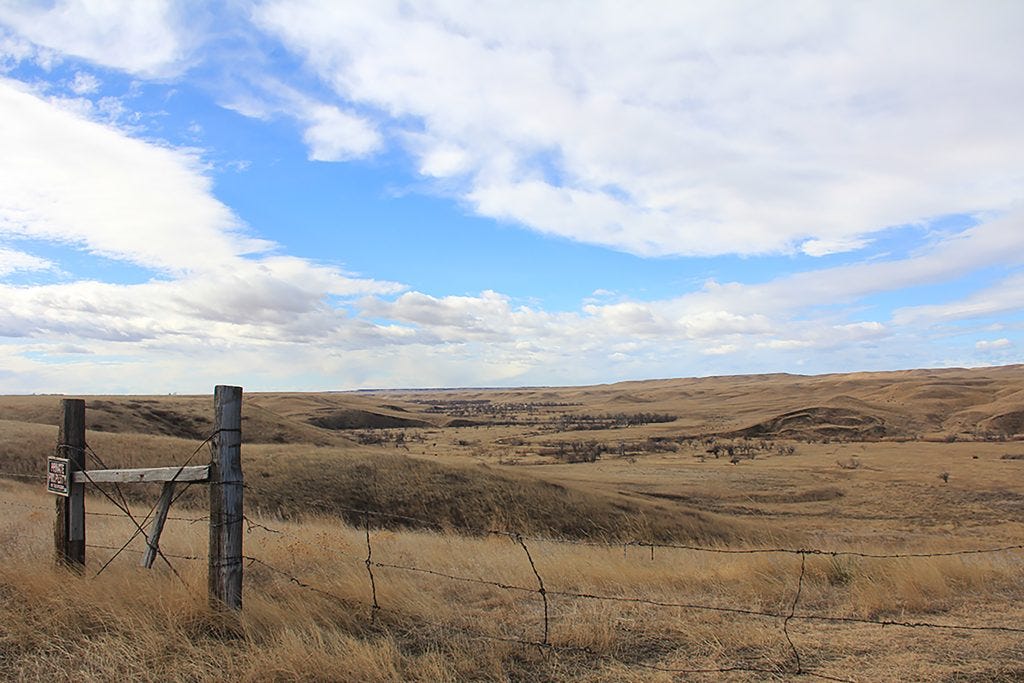
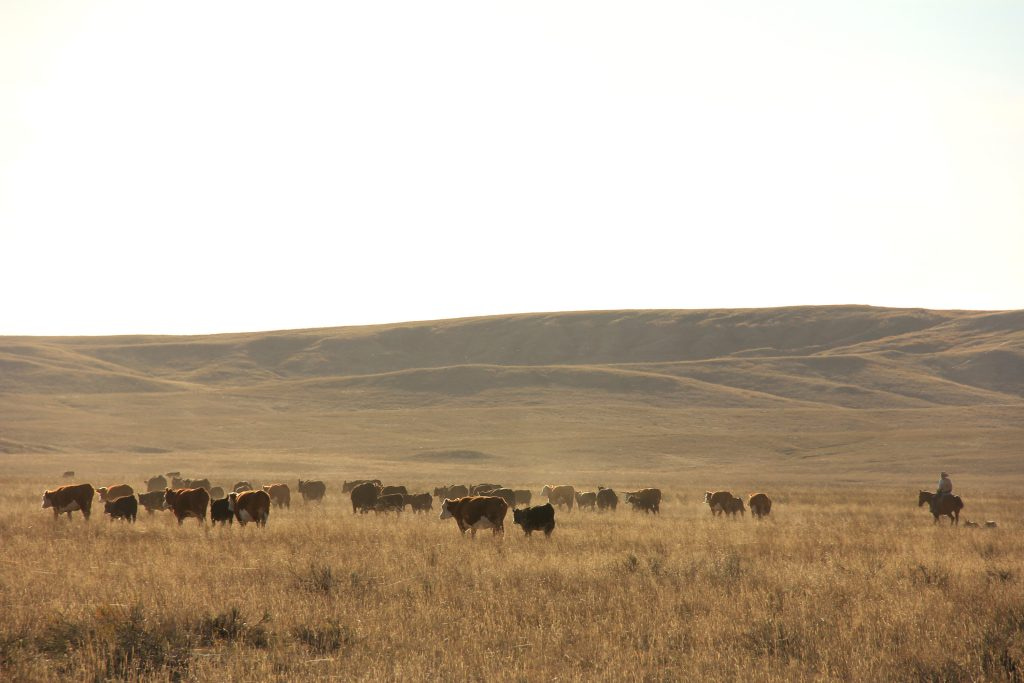
Water! Our fights with the G-Men are always over water. The same battle, with different approaches, continues, seeking the same outcome: water rights! Smaller ranchers succumb to exorbitant legal fees and capitulate. We are very fortunate to have prevailed in every case. NGO's are footloose and legal free, and most receive grants tied to a political affiliation. We're seeing the most egregious 'fraud' in green energy. Let's hope the Trump Administration can cut them off by taking away their $$$! Family farmers and ranchers are the best stewards of the open range.
Do a survey, it will be clear where the fence should be. Move it if needed. This is simple.